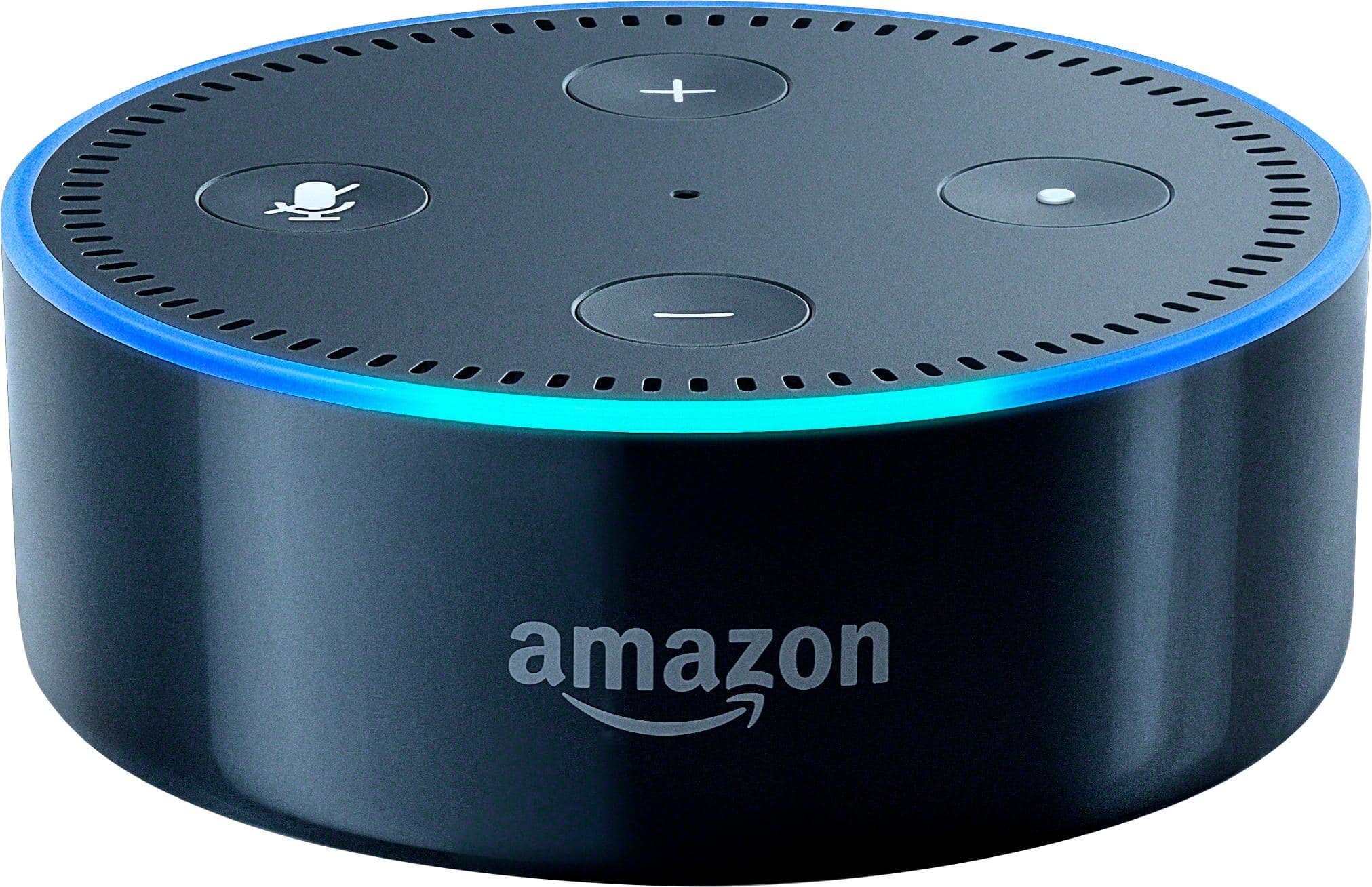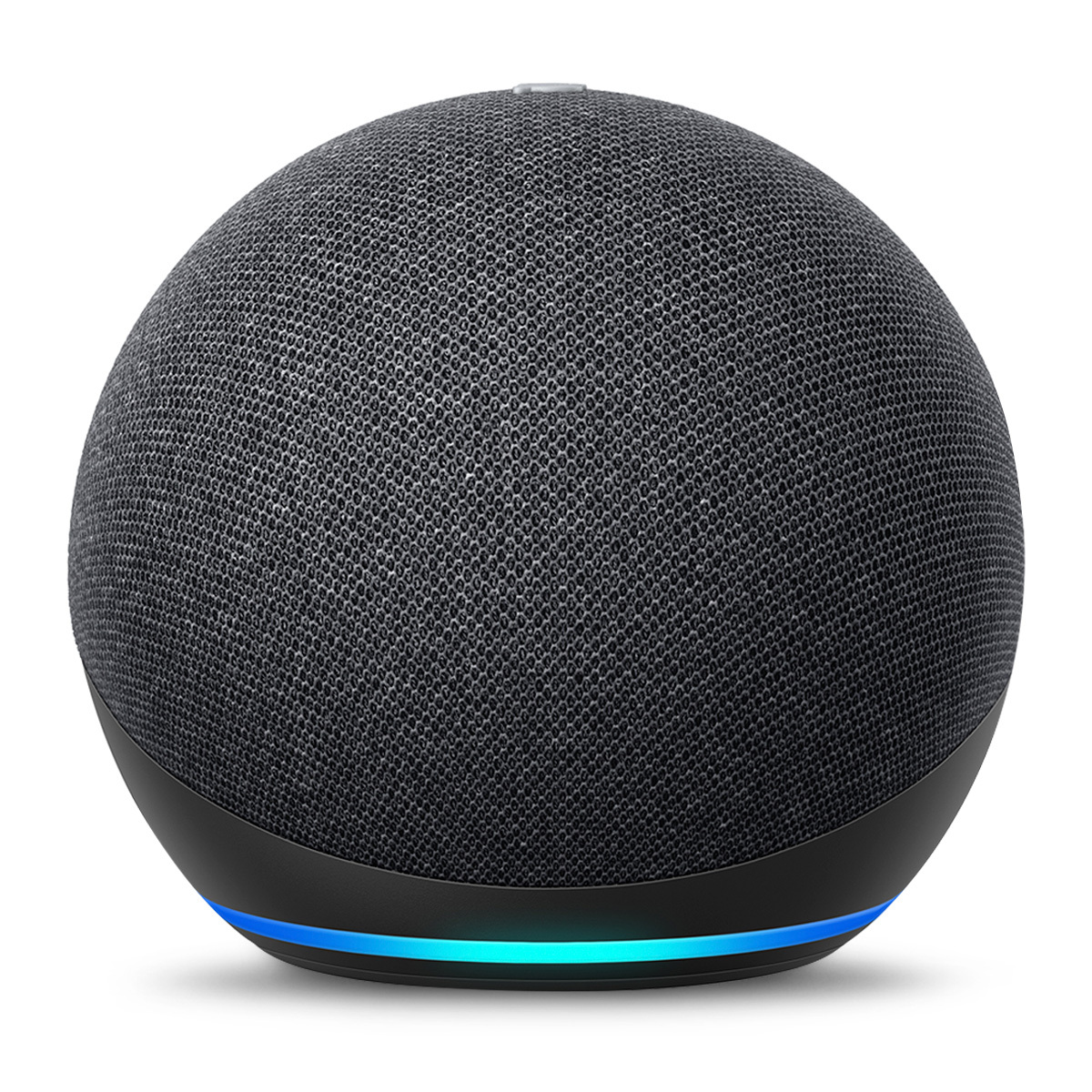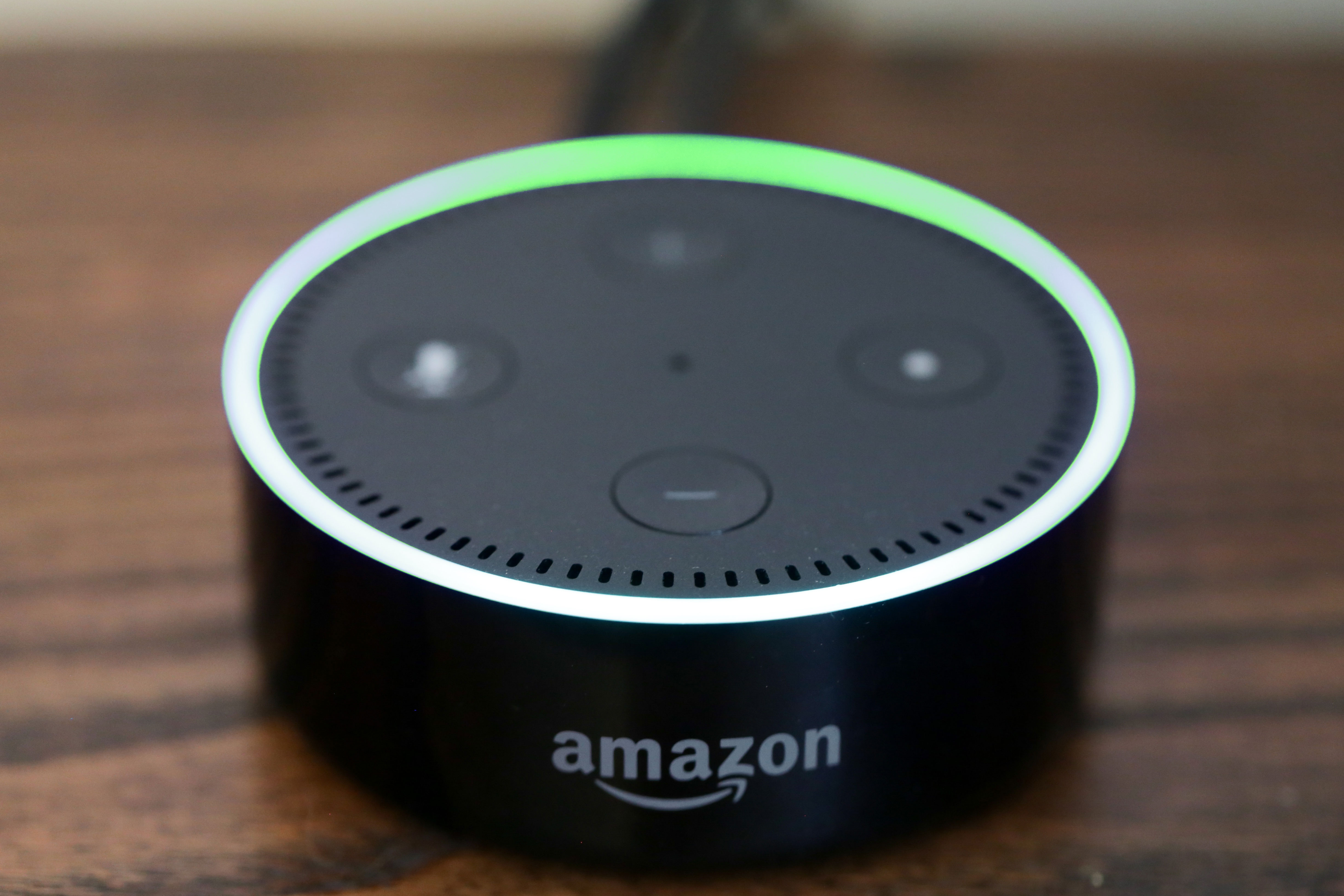Alexa Weinbaum Attack - Protecting Your Digital Home
Staying safe in our connected lives feels more important than ever, doesn't it? With so many smart devices around, like your Alexa-powered gadgets, it's pretty natural to wonder about keeping everything secure. We hear stories, and sometimes a specific phrase, like "Alexa Weinbaum attack," pops up, making us think about the ways bad actors might try to mess with our tech or trick us into doing something we shouldn't. This idea, the "Alexa Weinbaum attack," points to a general concern about digital safety, especially when it comes to the devices we rely on daily for simple tasks, you know?
It's not just about what a particular attack might do; it's about being aware of the general ways people try to get around security features. Think about how often you use your phone for everything – from checking messages to setting up your smart home speaker. That little device holds so much of your daily life, and making sure it's set up right, and that the apps on it are the real deal, is honestly a big part of keeping your personal information and your home safe, in a way.
So, we're going to talk a bit about how you can protect yourself and your smart home gadgets from various digital threats, including the kind of concerns that might make you think of an "Alexa Weinbaum attack." It's really about building good habits and knowing what to look out for, because, as a matter of fact, a little bit of caution goes a very long way in the digital world.
- The Enigma Of Nothing Happened Zoro
- Mozzys Wife Name An Insight Into His Personal Life
- Sam Rockwells Oscar Journey A Tale Of Talent And Triumph
- Unveiling The Magic Of Ronaldinho The Soccer Maestro
- Unraveling The Connection Between Emma Cannon And Mgk
Table of Contents
- What's the Fuss About the Alexa Weinbaum Attack?
- How Can We Stay Safe from Things Like the Alexa Weinbaum Attack?
- What Should You Look Out For with QR Codes?
- Is Your Smart Home Really Secure?
- What to Do If You Suspect a Problem?
- Simple Habits for a Safer Online Life
- The Bigger Picture of Digital Security
What's the Fuss About the Alexa Weinbaum Attack?
When you hear a phrase like "Alexa Weinbaum attack," it tends to bring up questions about specific security problems. While we don't have details on a widely publicized event by that exact name, the term itself points to a very real concern: the possibility of someone trying to exploit smart devices or their related apps. This could involve trying to gain unauthorized access, trick people into giving away information, or even messing with how your smart home operates, you know? It's the kind of thing that makes you think twice about what you click on or download.
Understanding the Idea Behind the alexa weinbaum attack
The core idea behind any "attack" on a digital system, including something like an "alexa weinbaum attack," is usually about getting something they shouldn't have. This might be personal data, control over a device, or even just causing trouble. Often, these kinds of digital trickery rely on people making small mistakes or not being quite aware of the risks. For example, someone might try to get you to install a fake app that looks just like the real Alexa app, and that's where things can get a little dicey, honestly.
How Can We Stay Safe from Things Like the Alexa Weinbaum Attack?
Keeping your digital life safe really comes down to a few basic, good habits. It's like locking your front door; you just do it without thinking. For your smart devices and the apps that control them, the first step is always making sure you're getting things from the right place. That means using official app stores, not clicking on strange links, and paying attention to what you're being asked to do, you know? It sounds simple, but it makes a huge difference, actually.
- Unveiling The Life And Journey Of Justin Biebwr
- Unveiling The Mystery George Bretts Wife Age
- Discovering The Delight Of Annes Pretzel A Soft Savory Sensation
- Unveiling The Mystery Of Drake Milligans Partner
- Revisiting The Beloved Happy Days Cast A Nostalgic Journey
Checking Your Apps - A Key Step Against the alexa weinbaum attack
A big part of staying safe from something that might resemble an "alexa weinbaum attack" is being really careful about the applications you put on your phone. Think about it: your phone is the command center for so many of your gadgets. The instructions in "My text" about getting the Alexa app are a good reminder: "install app make sure you have the alexa app installed on your phone." This isn't just about having *an* app; it's about having the *official* one. Fake apps can look incredibly convincing, but they might be designed to steal your information or give someone else access to your device. So, always go straight to your phone's official app store – Google Play for Android or the App Store for Apple devices – to find and download the Alexa app. Never get it from a random website or a link in an email, because that's where the trouble often starts, you know?
Verifying the app's legitimacy is pretty straightforward. Once you're in the official store, check the developer's name; it should clearly say Amazon Mobile LLC or something similar. Also, take a quick look at the reviews and the number of downloads. A real, popular app will have millions of downloads and lots of reviews. If an app claiming to be Alexa has only a few downloads or strange reviews, that's a really big red flag, to be honest. It's worth taking that extra moment to be sure.
And then, once you have the genuine Alexa app, keep it updated. Updates often include important security fixes that protect against new kinds of attacks. So, if your phone prompts you to update the Alexa app, it's usually a good idea to go ahead and do it. It's like getting a new, stronger lock for your digital door, if that makes sense, and it helps protect against things like an "alexa weinbaum attack" that might target older vulnerabilities.
What Should You Look Out For with QR Codes?
QR codes are super handy, aren't they? You can scan them to get information, pay for things, or, as "My text" points out, "Scan qr code with your phone’s camera to open the alexa app" or "Scan this qr code with your phone's camera to view the alexa routine." They're quick, but they can also be a bit of a sneaky way for bad actors to trick you. A malicious QR code might look perfectly normal but could send you to a fake website that looks just like Amazon's login page, or it might try to download something harmful onto your phone. So, you know, a little caution is pretty important here.
QR Codes and the alexa weinbaum attack - What to Know
When thinking about an "alexa weinbaum attack" and how it might involve QR codes, the key is to be selective about what you scan. If you see a QR code in a public place, like on a flyer or a sticker, be a bit skeptical. Is it from a source you trust? Is it on official signage? If it's just stuck to a lamppost or a random ad, it might be trying to trick you. For instance, someone could put up a fake QR code promising to help you "view the alexa routine" but actually direct you to a phishing site. It's just a little something to keep in mind.
Always try to scan QR codes that are clearly from a reputable source. If you're setting up a new Alexa device, the QR code in the official packaging or on the device itself is probably fine. If you get an email with a QR code, even if it looks like it's from Amazon, pause and think. Is it asking you to do something unusual? Is the email address legitimate? It's better to manually type in a website address or go directly to the official app than to risk scanning a questionable QR code, because, you know, it's really easy to get fooled by these things.
Another thing to consider is what happens after you scan. If the QR code takes you to a website, check the web address carefully. Does it start with "https://"? Is the domain name correct (e.g., amazon.com, not amaz0n.com or amazon-login.xyz)? If it tries to download an app directly, stop. Always go to the official app store for downloads, as we talked about earlier. This simple step can really help you avoid a lot of trouble, and honestly, it's a very good habit to get into.
Is Your Smart Home Really Secure?
Your smart home devices, like your Alexa speakers, are pretty amazing, aren't they? They make life easier, but they also connect to the internet, which means they need protection. An "alexa weinbaum attack" scenario might involve someone trying to get into your home network through a vulnerable device. So, making sure your Wi-Fi is secure and your devices are updated is a really big deal, actually.
Keeping Your Devices Safe from the alexa weinbaum attack
First off, your Wi-Fi network is the gatekeeper for all your smart devices. Make sure it has a strong, unique password. Don't use the default password that came with your router, because those are often easy to guess. Also, use WPA2 or WPA3 encryption if your router offers it; most modern ones do. This helps scramble the data moving across your network, making it much harder for anyone to snoop or get in, you know?
Next, think about each smart device itself. Change any default passwords on your Alexa devices or other smart home gadgets. Many devices come with simple passwords like "admin" or "12345," which are basically an open invitation for trouble. Create something complex, using a mix of letters, numbers, and symbols. This is just a little thing that makes a big difference.
And just like with your phone apps, keep your Alexa devices and other smart home gadgets updated. Manufacturers regularly release software updates that patch security weaknesses. Your Alexa device usually updates automatically, but it's good to occasionally check the settings in your Alexa app to make sure. These updates are pretty important for keeping things safe from potential "alexa weinbaum attack" types of issues, because, in some respects, they close off potential entry points.
What to Do If You Suspect a Problem?
Sometimes, despite all your careful steps, you might get a funny feeling that something isn't quite right. Maybe your Alexa device is acting strangely, or you received a suspicious message. It's better to be a bit overly cautious than to ignore a potential problem. Knowing what to do quickly can prevent a small issue from becoming a bigger one, so, you know, having a plan is a good idea.
Steps to Take After an alexa weinbaum attack Scare
If you think you might have encountered something like an "alexa weinbaum attack" or any other security issue, the first thing to do is disconnect. If it's a device, unplug it. If it's an app issue, turn off your Wi-Fi and mobile data on your phone. This stops any potential bad stuff from spreading or continuing, which is pretty important, honestly.
Next, change your passwords. Start with your Amazon account password, then any other accounts linked to your Alexa device or the potentially compromised app. Make sure each new password is strong and unique. Using a password manager can really help with this, as a matter of fact, making it easier to create and remember complex passwords.
Then, check your account activity. Log into your Amazon account (from a trusted computer or device, directly through the website, not a link) and look at your order history, voice history, and any connected devices. If you see anything you don't recognize, report it to Amazon's customer support. They can help you investigate and secure your account. It's just a good practice to follow, you know?
Finally, consider running a security scan on your phone or computer if you suspect a virus or malware. There are many reputable antivirus programs available that can help detect and remove threats. And remember, if you're ever unsure, it's always best to reach out to official support channels for help. They are there to assist you, which is very helpful, you know.
Simple Habits for a Safer Online Life
Beyond specific responses to potential threats like an "alexa weinbaum attack," building simple, daily habits can make a huge difference in your overall digital safety. It's like brushing your teeth; you do it every day to prevent problems. Things like using strong passwords, enabling two-factor authentication, and being careful about what you click are basic but very effective steps, you know?
Two-factor authentication, or 2FA, adds an extra layer of security to your accounts. After you enter your password, it asks for a second piece of information, like a code sent to your phone. Even if someone gets your password, they can't get into your account without that second code. Most major services, including Amazon, offer 2FA, and it's honestly a very good idea to turn it on for all your important accounts.
Also, be wary of unsolicited messages. If you get an email, text, or phone call asking for personal information, or telling you to click a link, be suspicious. Scammers often pretend to be from well-known companies. If you're concerned, go directly to the company's official website or call their official customer service number. Don't reply to the message or click any links in it, because, you know, that's how a lot of these tricks start.
The Bigger Picture of Digital Security
The idea of an "alexa weinbaum attack" serves as a reminder that our digital lives are constantly exposed to various risks. It's not about being scared, but about being aware and proactive. Every time you connect a new device, download an app, or even just browse the internet, you're making choices that affect your security. So, being informed is really your best defense, you know?
Staying up to date on common online scams and security best practices is pretty important. Websites and organizations dedicated to cybersecurity often share information about the latest threats. A little bit of knowledge can go a very long way in protecting your personal information and your smart home, and honestly, it's worth the small effort to keep yourself safe.
This article discussed protecting your digital home from threats like the "Alexa Weinbaum attack" by focusing on app security, QR code caution, smart home device safety, and steps to take if you suspect a problem. It also covered general habits for a safer online life, including strong passwords and two-factor authentication.
- Exploring The Life Of Mallory Swanson Does She Have A Kid
- Zoe Perrys Spouse Unveiling The Secrets Of Her Personal Life
- Unveiling The Life And Legacy Of Keith Bynum
- Unveiling The Story Of Karen Gillans Partner Love And Life Beyond The Screen
- Unraveling The Mystery Why Did The Derricos Divorce

Customer Reviews: Amazon Echo Dot (2nd generation) Smart Speaker with

Amazon Echo Dot Alexa 5ta Generación Negro | RadioShack México

Amazon's Alexa app hits the top of the App Store for the first time